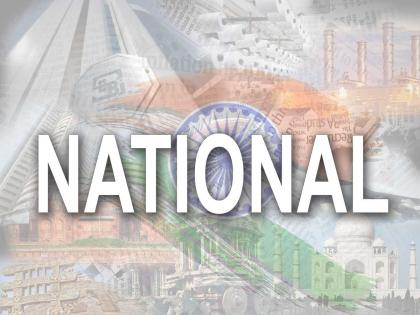Exiled Kashmiri Pandits share sufferings, hope to return home after abrogation of Art 370
By ANI | Published: January 19, 2020 10:05 PM2020-01-19T22:05:36+5:302020-01-19T22:15:06+5:30
Settled in Delhi's Greater Kailash, a 82-year-old Asha Raina still dreams of going back to her home in Kashmir and staying there forever with her children and grandchildren.

Exiled Kashmiri Pandits share sufferings, hope to return home after abrogation of Art 370
New Delhi [India], Jan 19 : Settled in Delhi's Greater Kailash, a 82-year-old Asha Raina still dreams of going back to her home in Kashmir and staying there forever with her children and grandchildren.
The octogenarian while speaking to on the 30th anniversary of the mass exodus of Kashmiri Pandits in 1990 said, "There were processions all night threatening us to leave Kashmir. We were so scared that we did not even think about our house, our belongings and to save our children and our family, we left Kashmir."
Immediately after the atmosphere turned hostile, the Raina family left everything and fled for their lives to Jammu where they were given shelter by one of their relatives.
Raina continued, "Nobody knew such a situation would arrive. Things were scattered as my children were somewhere, my husband was somewhere and I was somewhere else. The only thing we had in common was tears and nothing else. However, even in 2020, we are hopeful that we will go back to where we belong."
On January 19, 1990, lakhs of Kashmiri Pandits were forced to flee from their homes in the valley following a genocidal campaign launched by the terrorists in Kashmir.
The first killing of Kashmiri Pandit took place when advocate Tipa Lal Tikloo was killed in September 1990 in Habakadal. Till date, the Kashmiri Pandits are striving hard to cope with the situation and maintain their cultural and traditional ethnicity.
The 85-year-old Chaman Lal Raina said, "I was in Ladakh when this incident happened. I immediately came back and took my family to Jammu at night. Immediately after we left, our belongings were looted and our house was burnt."
"We were devastated and yet the struggle had just begun. We had no place to stay and had no food to eat. We were found in a situation where we went from riches to rags. To cope with the mental trauma was huge. Now, I have again started dreaming to return to the valley after the abrogation of Article 370," he added.
At the time of this incident, Farooq Abdullah was the Chief Minister of Jammu and Kashmir while Mufti Mohammed Sayeed was Union Home Minister.
Ashok Bhan, senior advocate, Supreme Court while reminiscing the day said, "I was in my mid-thirties and was a well-known lawyer when the exodus happened. After I came to Jammu, I learnt that our chamber, our library, our house all were either looted or burnt. The sense of loss of property did not have a big effect on us. The trauma was of losing our ancestral roots which was engraved in the soil of Kashmir. Till date, we have been struggling to retrieve the loss of our roots."
Bhan further said, "The seven lakh exiled Pandits all over the world are longing to go back to their home in Kashmir. If in today's conducive context, we cannot go back after article 370 has been abrogated, we can never go back."
Kashmiri Pandits fear for their loss of culture and tradition which makes them Kashmiri. A sense of disintegration has struck them for being away from their land for long.
BB Dhar, former president, Kashmir education, culture and science society said, "Now we go there as tourists. It is a pity for us that we have been suffering. For any Kashmiri pandit, it is painful. However, we pay special attention to mention our culture. There are societies who are doing a wonderful job of maintaining our culture."
Along with the impact on one's socio-culture, the mental suffering is immense especially for the seniors who at that time were aged above 70 years.
The 68-year-old Ramesh Kitchloo, owner of Samavar Restaurant repented, "For 12 years, I kept telling lies to my father that we will go back to our home in second bridge (Kashmir) till he died in 2001. How could I show my father that the house built by his father, where he grew up and where his son took birth was turned into shambles?"
( With inputs from ANI )
Open in app